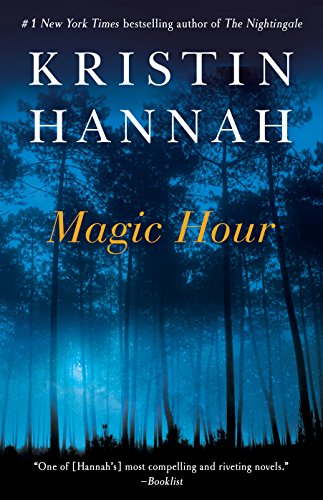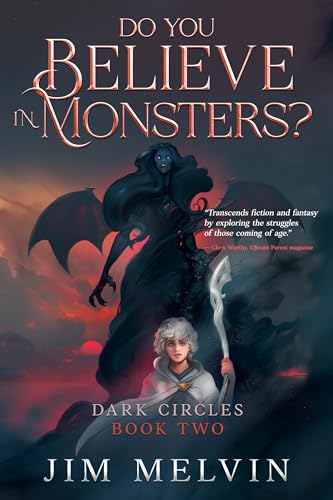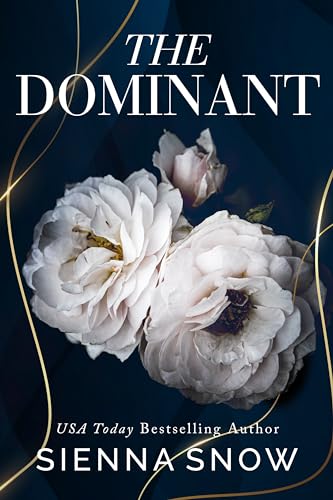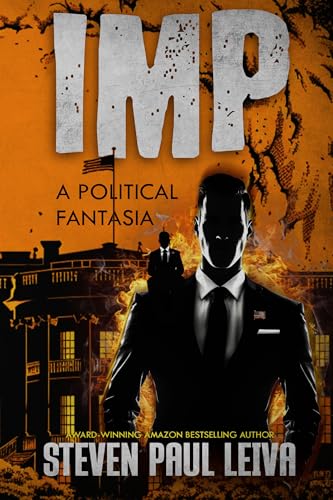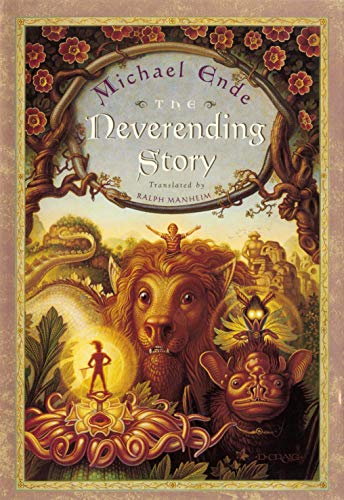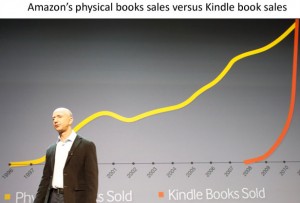
In today’s Publetariat Dispatch, author, and founder and Editor in Chief of Publetariat April L. Hamilton takes a tongue-in-cheek look at internet trolls.
‘Author Platform’ is the buzzphrase of the moment. If you’re doing a good job of creating and maintaining that all-important communication channel between yourself and the public, it’s only a matter of time before the web trolls descend upon you to ruin things for everyone.
Herewith, I present a relevant excerpt from Ms. Gertrude Strumpf-Hollingsworth’s “Encyclopedia of Annoyances, Bothers and Frustrations”, which provides a valuable natural history lesson in the identification and management of the species most likely to darken an author’s virtual doorstep.
Introduction
The Internet Troll (webicus infuriatum) is a hardy, highly adaptable family of parasites with established populations all over the web. Most leading Techno-Naturalists classify it as a viral organism due the fact that it reproduces by infecting members of targeted populations. Once exposed to webicus, susceptible individuals soon display the aggression, vitriol and boorishness which are the identifying hallmarks of all Trolls.
Hiding behind a pseudonym, webicus will quickly become the dominant element in any online ecosystem which provides it with a steady supply of attention and argument. In fact, webicus is so skilled in monopolizing these resources that it frequently drives off larger, but more peaceable, local populations. While all Trolls are destructive, there are perhaps none so pernicious as the subspecies which target author websites and online writer communities. Armed with a voluble nature and much larger vocabularies than other Trolls, these are particularly troublesome.
The Queen Bee/King Drone (lordicus cliqueium)
Behavior: Lordicus begins by befriending charter members and site owner/administrators alike with its initial friendliness and offers of assistance. With favors banked and loyalties established, lordicus reveals its true nature when another community member voices a dissenting view, or becomes as well-liked as lordicus. In either case, lordicus and its followers close ranks to attack or freeze out the other member, claiming to speak on behalf of the entire community.
Control: The only effective method of lordicus control is a strongly-worded email from the site owner or administrator. Lordicus’ response is invariably a dramatic, martyred leave-taking from the site, after which it will continue to lurk and foment dissention among other members via off-site communications.
Identifying Call: A shrill, “Who do you think you are?”, sometimes followed by a low-pitched, “Nobody cares what you think, anyway.”
The Puffed Pedant (self-importantia verbosia)
Behavior: Self-importantia is known for its lengthy, patronizing deconstructions of other members’ writing, in which it takes great pleasure in pointing out every broken rule of grammar, plotting, characterization and the like, regardless of whether or not said rules were broken intentionally, as a stylistic choice. Given that s.i. is never a published author in its own right, one might expect other community members to routinely disregard its remarks. However, s.i. posts with such smug conviction that it effects a sort of Jedi Mind Trick on the least experienced and most gullible members of the community.
Control: Since s.i. doesn’t technically overstep a site’s Terms of Service, there’s little the site owner/admin can do to put a stop to its antics. It was once thought that exposing the Pedant to the works of Kurt Vonnegut or Anthony Burgess would humble and silence the creature, but field studies have proven it will merely label such works “the exception that proves the rule” and emerge both unscathed and uneducated by the experience. Depriving s.i. of the attention, argument, and writing samples it craves usually proves more effective.
Identifying Call: A repetitive, clucking, “Do your homework.”
The Prickly Recluse (hypersensitivium rex)
Behavior: This species is known for its uncanny ability to incorrectly interpret the tone or meaning of any other member posts, regardless of how innocuous those posts may be, invariably choosing the most negative or insulting meaning possible and taking that meaning entirely personally. From there, hypersensitivium will repeat and repost its incorrect interpretation in an effort to rally support and sympathy for itself.
Control: First-time victims generally interpret the Recluse’s behavior as innocent misunderstanding, and will usually attempt to resolve the matter with an apologetic, clarifying post. However, since hypersensitivium will misinterpret the palliative post as well, such efforts are destined to fail. A warning post or email from the site administrator will generate one last, self-pitying post from the Recluse, followed by several weeks of absence from the site. It is from this latter behavior that the Recluse gets its name.
Identifying Call: A sharp, striking, “How dare you!”
The PubPro Mimic (wannabeum knowitallia)
Behavior: This type of Troll masquerades as a publishing industry professional with many years of relevant experience, yet never offers any proof of its claims and simply ignores all requests for such. Nevertheless, using its supposed trove of expertise as bait, wannabeum easily attracts a cadre of insecure writers looking for a “secret handshake” or other insider knowledge that might give them an edge in getting published.
Since wannabeum lacks the expertise to which it lays claim, its haughty assertions about writing, getting an agent, publishing and bookselling are largely false. Even so, any attempt to correct the Mimic directly, or even to merely post an alternative viewpoint, will backfire in a firestorm of belittling recriminations from the Mimic, which will rely on its claimed expertise as all the support or proof its posts require.
Control: Catching wannabeum in a resumé lie will cause it to immediately vacate a site, but this is nearly impossible since wannabeum never posts under its real name and is careful to keep the identifying details of its claimed career experience vague.
Identifying Call: “If you’d worked in the publishing business for as many years as I have, you’d know how ridiculous you sound.”
The Equalizer (evenus stevenus)
Behavior: Evenus is the self-appointed score keeper and referee of any community it inhabits. Evenus keeps constant track of who has shared good or bad news, who has posted congratulations or sympathy, and whether or not such congratulations or sympathies are adequately effusive and timely. Anyone failing to pass the Equalizer’s test is subjected to the same kind of freeze-out favored by the Queen Bee / King Drone, but unlike that species, the Equalizer keeps the impetus behind its attack secret for as long as possible. Often, Evenus deprives its victims of this information for so long that another member of Evenus’ circle is ultimately the one to reveal it.
Control: As with the Puffed Pedant, since Evenus doesn’t technically break any site’s Terms of Service, little can be done to discourage it. One can either ignore Evenus or strive to steer clear of it.
Identifying Call: frosty silence.
The Sock Puppet Master (bittera duplicator)
Behavior: Perhaps the most pathetic of all the Troll species which favor author communities and websites, bittera creates its own support network by setting up multiple user accounts. It uses these accounts to create negative or attacking posts about others and their work, then uses its other accounts to second its own opinions in a masturbatory fashion.
Control: No specific action is necessary. Bittera will eventually reveal itself as a fraud by losing track of its various aliases, posting in the tone or style of one persona while logged in as another. Once exposed, this Troll will immediately delete all of its past posts, close its many accounts and move on to a new site. It may reappear months later to set up a new collection of accounts and aliases, but only when it’s sure its past activities have been forgotten.
Identifying Call: mockingbird-like repetition of, and agreement with, anything posted under any of its many aliases.
The Fake Friendly (condescendiosa passive-aggressivium)
Behavior: This Troll openly attacks and insults authors and their work, and when called to account for its unacceptable behavior, claims its remarks have been misinterpreted and it meant no offense.
For example, in a thread about the merits of giving away free ebook copies as a promotional gambit, following the post of a member extolling the virtues of free ebook copies, it may post, “If your book was any good, you wouldn’t have to give it away.” When the other member responds with understandable anger and offense, the Fake Friendly will defend itself by retreating behind a response along the lines of, “I didn’t say your book actually is no good, I’m just saying that you deserve to be paid for quality work.”
Condescendiosa can keep this back-and-forth dance of insults and re-interpretation going indefinitely, but its most maddening behavior is its penchant for claiming the moral high ground by recasting its abuse as simple, well-meaning honesty, which it says others can’t tolerate on account of being overly sensitive.
Control: Much like the Sock Puppet Master, this type of Troll is always the cause of its own undoing. As it slashes and burns its way through the community, systematically training its disingenuous focus on member after member, condescendiosa eventually finds it has more enemies than cohorts and vacates the premises.
Identifying Call: “You’ll never make it as a writer if you don’t develop a thicker skin,” and “I don’t know what you’re so upset about.”
April L. Hamilton is an author and the founder of Publetariat. This is a cross-posting of an entry from her Indie Author blog, dated 6/8/09.


